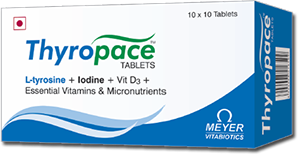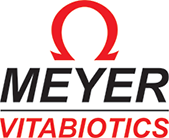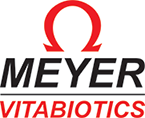
Nothing compares Thyropace in Thyroid Disorders
Normalizes the Thyroid function, Improves basal metabolic rate, Enhances the conversion of T4 to T3 and Controls blood sugar levels & Insulin sensitivity.
THYROPACE™ TABLETS
Offers thyroid function boosters:
L-tyrosine, Iodine
Vital vitamins:
Vit-D3 (1000 IU), Vit-B6, Vit-B12, Folic acid
Micronutrients with macro benefits:
Selenium, Iron, Zinc, Copper and Chromium
Ingredients:
L-Tyrosine, Dispersing Agent {460 (i)}, Ferrous Fumarate, Zinc Sulphate Monohydrate,
Hydroxypropylmethylcellulose (464), Polyethylene Glycol (1521), Binder (462),
Propylene Glycol (1520), Crospovidone (1202), Sodium Starch Glycollate, Maize
Starch, Pyridoxine Hydrochloride (Vitamin B6), Anticaking Agent {553 (iii), 551},
Magnesium Stearate {470 (iii)}, Vitamin B12 (coated), Polyvinylpyrrolidone (1201),
Vitamin D3 (stabilized), Hydroxypropylcellulose (463), Folic Acid, Copper Sulphate,
Chromium Trichloride, Sodium Selenate, Potassium Iodide.
(Numbers in brackets as per International Numbering System).
Contains Permitted Natural Colour {171, 172 (i) (ii)}. Not for medicinal use.
Role of Key Nutrients
Dietary constituents have been known to affect thyroid function.33
Normal thyroid status is dependent on several micronutrients which are responsible for both synthesis and metabolism of thyroid hormones. Deficiencies of micronutrients such as selenium, iron, and vitamin A combined with iodine deficiency can significantly affect thyroid function and shunt response to prophylactic iodine.
L-Tyrosine
L – tyrosine is an amino acid which the body makes from another amino acid – pheynylalanine. L-tyrosine is a key component in the synthesis of thyroid hormones. It undergoes iodination to eventually form T4 and T3. There are three classes of amino acids–essential, non-essential, and conditional. Tyrosine belongs to the third class,
implying that it is not generally essential, except in times of illness or stress.
L – thyroxine treatment in hypothyroid patients has been found to reduce the cerebrospinal fluid (CSF) levels of tyrosine, suggesting that there is an interaction between thyroid function and CSF disposition of monoamine compounds.34
Furthermore, it has been recently found that tyrosine can protect against oxidative stress through ferryl haemoglobin reduction.35 A high dose of Tyrosine supplementation was also found to increase dopamine levels in a clinical study.36
In rats, acute administration of L-tyrosine has been found altering the energetic metabolism of hippocampus and striatum.37 Tyrosine also contributes through the heme-serum albumin complex in protecting proteins from irreversible oxidation.38
L-tyrosine is also indicated in phenylketonuria and for improving alertness followed by loss of sleep.39
Iodine
Iodine is a non-metallic element required in trace amounts in the body, and is derived mostly from the environment. It is essential for the iodination of tyrosine residues which ultimately leads to thyroid hormone formation.
Iodide is a key component of thyroid hormone and evidence states that low iodine can reduce serum total thyroxine and free thyroxine levels.
Iodine intake of the population has been known to impact the incidence and prevalence of thyroid disorders too.4,40
Furthermore, iodine supplementation in the form of iodised salt has been observed in one study6 to improve iodine level, and in many iodine-deficient countries to correct iodine deficiency.41 Correction of iodine-deficiency has also been linked to a decrease in infant mortality.41
L-Tyrosine is a precursor of thyroid hormones (T4 & T3) Iodide is a key component of thyroid hormone and evidence states that low iodine can reduce serum total thyroxine and free thyroxine levels.
Iodine deficiency causes a spectrum of iodine-deficiency disorders (IDD) namely endemic goitre, hypothyroidism, cretinism, hypothyroxinemia, mental retardation, etc.,4 though the thyroid gland adapts by hyperfunctioning in mild iodine deficiency.33
In infancy, iodine deficiency impairs intellectual development.41
Iodine requirement is increased in pregnancy42 It is recommended that iodine should be consumed in amounts of 150 mcg, 200-250 mcg, 70-120 mcg, and 40 mcg, by adults, pregnant or lactating women, children, and neonates respectively.41,43
Optimal Iodine Intake
The recommended daily iodine intake is variable depending the age of the subject l (Table 1).
The recommended intake of iodine in neonates reflects the observed mean iodine intake of young infants exclusively fed human milk in iodine-replete areas.
However, it is well established that the iodine content of breast milk is critically influenced by the dietary intake of the pregnant and lactating mother. The iodine intake required in order to achieve a positive iodine balance and to insure a progressively increasing intrathyroidal iodine pool in the growing infant is at least 15μg/kg/day in full-term and 30μg/kg/day in preterm infants; this corresponds approximately to 90μg/day.
Table 1: Iodine intake
| Age or population group | Age | Estimated iodine intake μg/day | Urinary iodine concentration μg/l |
| Premature infants | 0–6 months | 90 | 100 |
| Term infants | 0–6 months | 90 | 100 |
| Children | 6–12 months | 90 | 100 |
| Children | 1–3 years | 90 | 100–150 |
| Children | 4–8 years | 90 | 100–150 |
| Children | 9–13 years | 120 | 100–150 |
| Adolescents | 14–18 years | 150–200 | 100–200 |
| Adults | 19 years and older | 150–299 | 100–299 |
| Pregnant women | all ages | 230–300 | 200–300 |
| Lactating women | all ages | 260–300 | 200–300 |
| Recent ICCIDD RDA for pregnant and all ages | Lactating women | 250–350 | 200–300 |
Recommendations by the International Council for the Control of Iodine Deficiency Disorders, WHO, and UNICEF set 100μg/l as the minimal urinary iodine concentration for iodine sufficiency. This figure corresponds roughly to a daily intake of 150μg iodine.
The upper limit for safe iodine intake is uncertain and varies widely among individuals and populations. Occasional intake up to 1mg iodine per day may be safe for most people, and much higher amounts are usually tolerated for a brief period of time, without major problems.
Selenium
Selenium is an essential element mainly found in soil, and a critical component of selenoproteins (glutathione peroxidase and thioredoxin reductase), influencing the metabolism of thyroid hormones. It influences the conversion of T4 into T3. Selenium-containing iodothyronine deiodinases control the synthesis and degradation of T3.44 Seleno-peroxidases, thioredoxin reductase, and selenocysteine compounds help protect the thyroid gland from peroxidases produced as a result of hormone synthesis, and from free radical damage.2,33,41,44,45
Deficiency of selenium causes hypothyroidism as a result of decreased T3 levels, resulting in a range of signs and symptoms such as depression, fatigue, and possibly weight gain.45 It exacerbates iodine-deficiency resulting in hypothyroidism, goitre, and myxedematous cretinism.33 Co-existence of iodine and selenium-deficiency and thiocyanate exposure may lead to thyroid necrosis and fibrosis.41 Additionally, selenium deficiency may make subjects more susceptible to physiological stress and enhance the progression of certain viral infections.41
Selenium deficiency is observed in patients in whom gastrointestinal absorption is affected, patients who live in regions where soil is deficient of selenium, or in patients who are on parenteral nutrition.33
It is essential that selenium supplementation is preceded by iodine supplementation in regions where iodine and selenium are deficient, because supplementation with selenium alone results in increased peripheral conversion of T4 to T3 which in turn results in increased iodine loss and further decline in T4.33,41,46
A protective effect of Selenium against goitre and an inverse association between Selenium and thyroid volume was found in one study. A correlation between Selenium deficiency and thyroid cancer too has been found. In other studies, serum levels of thyroid anti-TPO autoantibody were decreased and patient’s self-assessment towards
Hashimoto’s thyroiditis or Graves’ disease were increased, upon Selenium treatment.41
When anti-thyroid drugs were combined with Selenium, patients with Graves’ disease and autoimmune thyroiditis, with thyroid-associated ophthalmopathy achieved euthyroidism faster than those patients who were treated only with anti-thyroid drugs.47
A clinical study found that dietary selenium modulated the concentrations of T3 and thyroid hormone metabolism, eventually leading to body weight and composition changes.48
Selenium-containing iodo-thyronine deiodinases control the synthesis and degradation of T3 44
Iron2,33,44
Iron deficiency impairs thyroid hormone metabolism. In subjects with moderate to severe iron deficiency anaemia, significantly lower T4 and T3 levels have been reported.
The iron-dependent enzyme thyroid peroxidase (TPO) is responsible for catalysing two initial steps of thyroid hormone synthesis – thyroglobulin iodination and iodotyrosine residue coupling. Severe iron deficiency has been seen to lower TPO activity and thus interfere with thyroid hormone synthesis. Consequently, non-anaemic children were observed to improve with iodine supplementation better than anaemic children, with respect to goitre and TSH levels.
The following significant associations with serum ferritin were observed l in a clinical study:
• Positive association with tT4 concentration
• Negative association with T3/T4 ratio
• Negative association with TSH
Iron deficiency anaemia (IDA) may reduce T3 binding to nuclear receptors in the liver.
It may bring about alterations in the central nervous system control of the thyroid axis.
IDA may decrease oxygen transport, thus impairing thyroid metabolism.
Iron supplementation has been found to be efficacious in improving thyroid hormone levels as well as the efficacy of iodised salt. Generally, iodine and iron deficiency coexist, and dual fortification of salt with iodine and iron has been observed to be significantly better than iodine-alone fortified salt.
It has also been contended that rT3 increase is related to iron status changes and inversely correlated with plasma ferritin concentration changes.
In one study,50 a positive correlation between plasma T4 and serum ferritin was found, and subjects with low serum ferritin were detected with a relatively high T3/T4 ratio.
Copper, Chromium, and Zinc.
Copper deficiency has been found to affect the endocrine system.51 Copper plays the role of an antioxidant via superoxide dismutase, thus indirectly influencing thyroid status.45 It stimulates the production of T4 and prevents its over-absorption into blood cells by controlling calcium levels of the body.52
It also aids the synthesis of phospholipids which are necessary for TSH synthesis.52 Furthermore, copper status has also been found associated with decreased plasma T3 concentrations.53
Typically, it is required by children and adults in quantities of 0.5-1 mg and 1.2 mg respectively.52
Severe iron deficiency has been seen to lower TPO activity and thus interfere with thyroid hormone synthesis Copper plays the role of an antioxidant via superoxide dismutase, thus indirectly influencing thyroid status. 45
It is hypothesised that chromium interacts with human thyroid function.32 It is known that the thyroid hormone is mutually competitive with insulin and chromium status may be affected by thyroid activity. It is speculated that hypothyroidism may increase the production of insulin and affect chromium status.
Conversely, increased production of insulin may suppress thyroid expression or function.55
Human studies, in vitro data and animal experiments point to the findings that chromium deficiency may result in insulin resistance, which can be managed by chromium supplementation. Insulin resistance, in turn, is an important risk factor for coronary heart disease.56
Zinc has been found to increase the levels of T3 in subjects deficient with the hormone.45 It is necessary for the production and utilisation of thyroid hormones. Thyroid hormone binding transcription factors too contain zinc bound to cysteine residues – these factors are necessary for modulation of gene expression.53
Liver deiodinase activity was reported in a study to be reduced considerably in zinc deficiency.57
Furthermore, chromium and zinc are beneficial in regulating energy metabolism as well as the action of insulin. In diabetes patients, chromium supplementation was found to improve glycemia.58,59
TSH levels were found to decrease and plasma reverse T3 increase, to achieve normal status, in patients with Down’s syndrome supplemented with zinc.53 Zinc status has been speculated to impact peripheral metabolism of thyroid hormones. Oral supplementation with zinc sulphate was found to normalise serum free T3, T3, and TRH-induced TSH reaction, and to decrease serum rT3.60
Vitamin D3
Vitamin D3 deficiency has been known to modify metabolite function affecting many cellular functions.
In one study, serum vitamin D3 was found to be correlated inversely with weight and markers of type II diabetes mellitus.61 Vitamin D3 has also been thought to prevent inappropriate exposure of tissues and cells to the T3 hormone.62
It has been known that low levels of vitamin D are associated with hypothyroidism. Vitamin D3 serves as an immune modulator in auto immune thyroid disease (AITD). The thyroid hormone and vitamin D both bind to the steroid hormone receptors.63 It has also been found that vitamin D3 supplementation can have beneficial effects on the bone physiology in thyroid disorders.64
It is speculated that hypothyroidism may increase the production of insulin and affect chromium status Liver deiodinase activity was reported in a study to be reduced considerably in zinc deficiency 57
The thyroid hormone and vitamin D both bind to the steroid hormone receptors 63
Vitamins B6, B12, And Folic Acid
It is speculated that vitamin B12 deficiency might have a detrimental effect on peripheral activation of T3 from T4.60 Vitamin B6, folic acid, or vitamin B12 deficiency can result in elevated homocysteine which is linked with hypothyroidism; levels of folic acid have been found associated with levels of TSH too.45 About 28% of patients with autoimmune thyroid disease were found to have decreased concentrations of vitamin B12; the latter has also been found associated with hypothyroid and hyperthyroid state in women.65
The daily requirement for vitamin B6 is about 2 mg, which is usually provided by a typical diet.65





